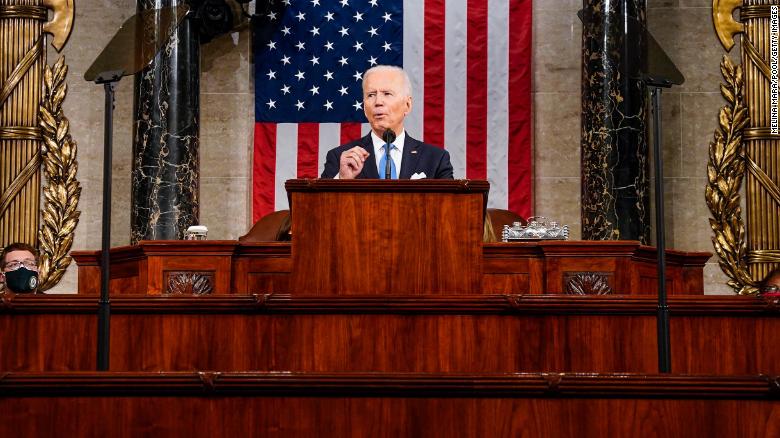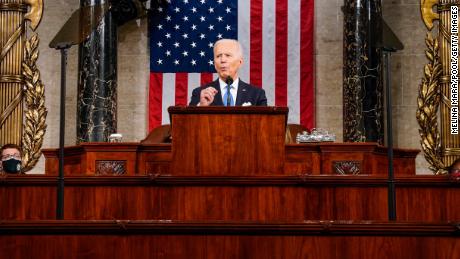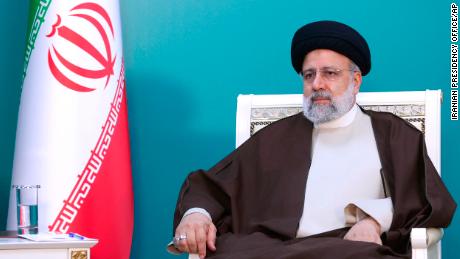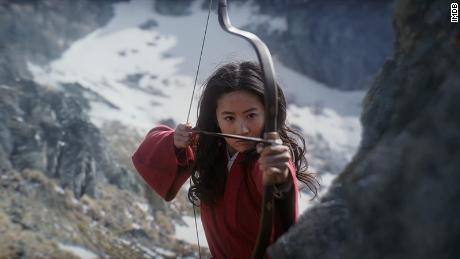This is a wrap of several top stories from China for April 30, 2021.
Hong Kong (CNN)When US President Joe Biden urged Americans to "win the 21st century" in his joint address to Congress, he painted a picture of a new great power competition with China and repeatedly name checked its leader, Xi Jinping.
"He's deadly earnest on (China) becoming the most significant, consequential nation in the world," Biden said of Xi. "He and others -- autocrats -- think that democracy can't compete in the 21st century with autocracies."
"The autocrats will not win the future," he vowed later. "America will."
But in Beijing, Biden's fighting words have barely made a ripple, at least on the surface.
Responding to a question about Biden's speech, a spokesman for China's Foreign Ministry said the US was merely feeling insecure and jealous about China's development.
"While China devotes itself to improving people's lives, some in the US habitually target China every time they speak," Wang Wenbin said at a daily briefing. "This is in nature out of Cold War thinking, a zero-sum mindset and ideological bias -- and a sign of lack of self-confidence."
"We hope the US can discard this 'sour grapes' mentality towards China, and treat China's development with a more peaceful and rational mind," he added.
Biden's comments, and Beijing's reaction to that speech, speak to a role reversal between the two nations: the US used to set moral, economic and political benchmarks for other countries. But as China becomes an increasingly confident world player, Washington is beginning to measure itself against Beijing in many ways, from the development of advanced technologies to geopolitical influence.
The Chinese Communist Party has in recent years grown increasingly confident that China is on an ascendent trajectory and will one day surpass its Western rivals. That view received a boost during the Trump presidency. Despite his tough rhetoric on China, many Chinese nationalists hold the view that by withdrawing the US from global leadership and sowing political and social divisions at home, Trump gave China an opportunity to assert greater leadership in the world.
In June 2018, as the US and China began a lengthy trade war, Xi┬Ātold┬Āa group of senior party, military and foreign affairs officials that China had entered the "best time for development since modern times," while the world is undergoing "changes unseen in a hundred years."
"The East is rising, and the West is declining," he concluded -- a message that has since been repeatedly pounded in the Party at various meetings and political studying sessions.
Officially, Beijing has repeatedly said China focuses on its own development and is not interested in promoting its political system or development model. But to party elites, international recognition of China's ideological and political systems has always been important -- and with the Communist Party's centenary on July 1 that is only more acute. ┬Ā┬Ā
For many, the Covid-19 pandemic was further vindication of Beijing's rise. China's ability to swiftly contain the outbreak -- despite an initial mishandling -- has been touted as a vivid proof of the superiority of its authoritarian political system, with the faltering response of Western governments cast as a fatal weakness of democracies. As the world's major economies plunged into recession, China roared back into economic growth.
In his own address to senior Chinese officials in January, Xi said China now held the advantage. "Time and the current trend of events are on our side," he┬Āsaid. "This is where our composure, determination and confidence lie."
Around Asia
- The coronavirus crisis in India continues to worsen, with funeral pyres burning throughout the night.
- Facing a backlash, a spokesperson for India's ruling BJP said "responsibility is first and foremost ours."
- A global shortage of computer chips is going from bad to worse.
- Japanese airline ANA is trialing hands-free bathroom doors.
- Taiwan's Coast Guard is launching a new flagship to handle Chinese fishing and sand-dredging ships, which Taiwan says operate illegally in its waters.
- Meanwhile in China, 100 people gathered at a hotel in Sanya, in southern Hainan province, to break the Guinness World Record for largest underwater mermaid show.
The business of China: Will 'Nomadland' censorship haunt Marvel in China?
When Beijing-born Cloe Zhao made history by becoming the first Asian woman to win an Oscar for best director, the Chinese government lost an opportunity for soft power. Instead of celebrating the global recognition, discussion of Zhao's achievement was censored online. Her film "Nomadland" was also removed from the country's major movie websites, after she was deemed to have made unpatriotic comments.
Hollywood and filmmakers are increasingly making decisions about content, casting, plot, dialogue, and setting to "avoid antagonizing Chinese officials who control whether their films gain access to the booming Chinese market," according to a recent report from PEN America.
But even when filmmakers take painstaking steps to appease Chinese audiences, it doesn't always pay off. Last year, Disney had bet that "Mulan" would be a major success at Chinese box offices. Instead, it was eschewed in China for its westernized flair and unfaithful retelling of the original legend; and abroad, Disney was scorched for publicly thanking a Chinese government agency accused of human rights abuses in Xinjiang for its helping in making the movie.
While "Nomadland" may not have made it to Chinese cinemas, Disney is hoping for box office success for Zhao's next film: Marvel superhero picture "Eternals," starring Angelina Jolie, Salma Hayek and Don Lee. The big question for Disney is if the government's censorship of Zhao's win and online nationalists' attacks on her character will linger when "Eternals" releases in China.
-- By Selina Wang
Photo of the day
Lift off: Crowds in Hainan watch the launch of a Long March 5B rocket, carrying the core module of China's Tianhe space station, which is due to be operational by the end of 2022.
Disney denies responsibility for Xinjiang controversy
A top Disney executive has denied responsibility for thanking a Chinese government agency accused of human rights abuses in Xinjiang in the credits of "Mulan," saying the decision was made by a local contractor.
The movie studio faced a major backlash last year for acknowledging several official bodies involved in the filming of the live-action remake, which took place in the western Chinese region where Beijing has been accused of detaining millions of Uyghurs and other Muslim ethnic minorities.
In a letter this week to the UK's House of Commons business select committee, Sean Bailey, the president of Walt Disney studios motion pictures, wrote that "Chinese regulations prohibit foreign producers from operating independently and require them to partner with a Chinese production company. The Chinese partner is responsible for securing all filming permits."
Bailey said "the production company, Beijing Shadow Times, provided our production team with the list of acknowledgments to be included in the credits for Mulan. The Walt Disney Company has no separate, independent or ongoing relationship with government authorities in the Xinjiang autonomous province."
Quoted and noted
"China's population continued to grow in 2020, and the detailed numbers will be released in the seventh census report."
ŌĆö The National Bureau of Statistics hit back at a report in the Financial Times that China's population had shrunk for the first time since 1949. However, a decline is expected by 2022 at the latest, despite government efforts to turn around a low birth rate in the wake of the "one child policy" being lifted.


























